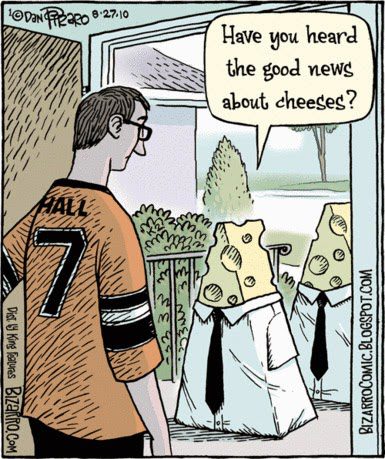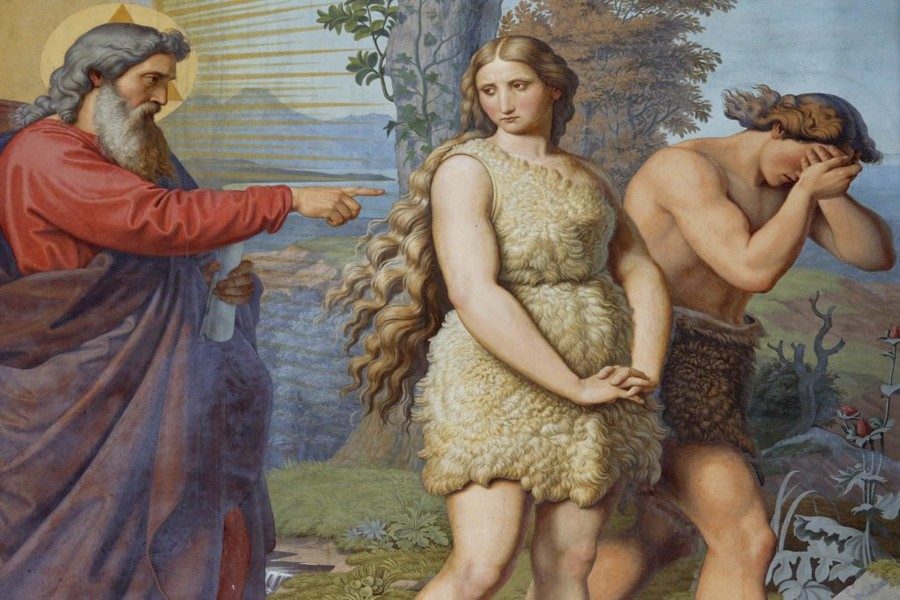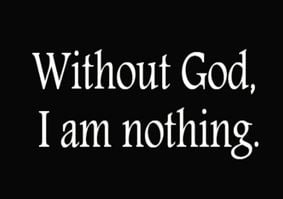 As an Evangelical Christian, I was taught that I should thank God for everything in my life. It was God, after all, who gives people the ability and strength to do things, and without him doing so, mere mortals would be powerless and helpless. The Apostle Paul said, in ALL things give thanks, and he reminded readers that their ability to breathe and walk comes from God. Simply put, nothing in life happens without God.
As an Evangelical Christian, I was taught that I should thank God for everything in my life. It was God, after all, who gives people the ability and strength to do things, and without him doing so, mere mortals would be powerless and helpless. The Apostle Paul said, in ALL things give thanks, and he reminded readers that their ability to breathe and walk comes from God. Simply put, nothing in life happens without God.
I was also taught that I should always be humble and deflect any praise thrown my way. To fail to do so was a sign of pride — a human expression Evangelicals consider sinful. I am an avid sports fan. I have watched countless Christian athletes over the years give interviews in which they give God all the credit for their athletic prowess and success. To do otherwise is to say that their success came from, you know, things like diligence, hard work, and passion. These things must be deflected or diminished lest God be made to look bad. God is the ultimate narcissist — think Donald Trump. He not only deserves all praise and glory, he demands it, threatening judgment for anyone who dares to suggest otherwise.
As a pastor, I worked my ass off to become a good public speaker. I spent countless hours crafting my sermons, making sure that when I delivered them, I was giving congregants the best possible sermon. I knew far too many lazy pastors who, Sunday after Sunday, preached dreadful, forgettable sermons — and they didn’t care. Doing my best mattered to me, and my “idols” were men who were great pulpiteers, men to whom congregants loved to listen. Yet, no matter how good I became at preaching, my Evangelical theology demanded that I give God/Jesus/Holy Spirit total credit for all my hard work.
I am a photographer. While I have been taking pictures for over twenty years, it wasn’t until 2005 that I decided to work hard at becoming a better photographer. Since then, I have spent countless hours perfecting my craft, and the harder I work the more I realize how much I still have to learn. Today, my daughter and several of my granddaughters were talking about photography. I corrected their errant belief that it is equipment that makes for good photographs. It’s not. It is the photographer who makes the picture, not the equipment. Buying the most expensive iPhone will not magically turn someone into a good photographer. Last year, I met a sincere person at a high school basketball game who wanted to know how to take pictures that turned out like mine did. Here was a person who owned $5,000 worth of Canon camera bodies, yet she hadn’t even learned the basics about how to operate her equipment. I encouraged her to learn how to use her equipment and to learn the basics of photography. The most expensive camera and lens won’t make for good photographs if the user hasn’t educated himself/herself on, at the very least, the fundamentals of photography.
As a photographer, I know that praising my equipment for a good photo is akin to thanking God. My cameras are inanimate objects that have no power to do anything unless I pick them up, turn them on, adjust the settings, and apply my expertise to the scene in front of me. Years ago, I saw an interview of Dave Matthews wherein he talked about picking up cheap guitars to use in his concerts. He talked about playing gigs with $50 acoustic guitars. Matthews was able to take yard sale castaways and make magnificent music. How is that possible? Because making music is all about the artist, not the instrument. And that’s the point I am making here. Want to be good at something? Work at it, I mean really work at it. Mastering any craft requires diligent, never-ending work and a willingness to never accept “good enough.”
Tomorrow is Thanksgiving. Today, Polly, my youngest daughter, my daughter-in-law, and my granddaughters spent the day baking a dozen pies, peeling 15 pounds of potatoes, peeling sweet potatoes, preparing bread for stuffing, and any other day-before preparations they could do. Polly still has to make cranberry relish, brine the turkey, prepare the ham, and make sure everything is ready for Thanksgiving Day. She will arise early in the morning and begin cooking everything to perfection. She will spend long hours in the kitchen preparing a wonderful meal for the 21 people who will gathering around our table on Thursday. She will do these things because she loves her family and she absolutely loves to cook. She has spent decades perfecting her cooking skills, and it shows. Forty years ago, Polly knew how to “cook” — as in opening a can or a box. Today? She is an accomplished cook. Does every scratch meal turn out to her exacting standard? No. And when one doesn’t, she finds out why so she doesn’t make the same mistake twice. Her goal is to be a better cook today than she was yesterday. When her two favorite magazines, Cook’s Country and Cook’s Illustrated, show up, she scours them for new recipes and tricks of the trade. I read these magazines too, but alas, all I am looking for are things that look scrumptious. I often say, hey Polly, how about this one? And this one? And this one? Well, you get the point. I applaud her willingness to push her skills and try new things.
Come tomorrow, I will not thank God for anything. As I eat way too many calories, I will not praise Jesus for turkey, mashed potatoes, and pumpkin pie. My thanks will go to the woman and her helpers who made the meal possible. The God at the Gerencser table will be Polly. I plan on giving credit to whom credit is due.
Let me leave you with my all-time favorite meal prayer. Take it away Jimmy Stewart.
About Bruce Gerencser
Bruce Gerencser, 61, lives in rural Northwest Ohio with his wife of 40 years. He and his wife have six grown children and twelve grandchildren. Bruce pastored Evangelical churches for twenty-five years in Ohio, Texas, and Michigan. Bruce left the ministry in 2005, and in 2008 he left Christianity. Bruce is now a humanist and an atheist. For more information about Bruce, please read the About page.
Bruce is a local photography business owner, operating Defiance County Photo out of his home. If you live in Northwest Ohio and would like to hire Bruce, please email him.
Thank you for reading this post. Please share your thoughts in the comment section. If you are a first-time commenter, please read the commenting policy before wowing readers with your words. All first-time comments are moderated. If you would like to contact Bruce directly, please use the contact form to do so.
Donations are always appreciated. Donations on a monthly basis can be made through Patreon. One-time donations can be made through PayPal.


 A guest post by Paul McLaughlin
A guest post by Paul McLaughlin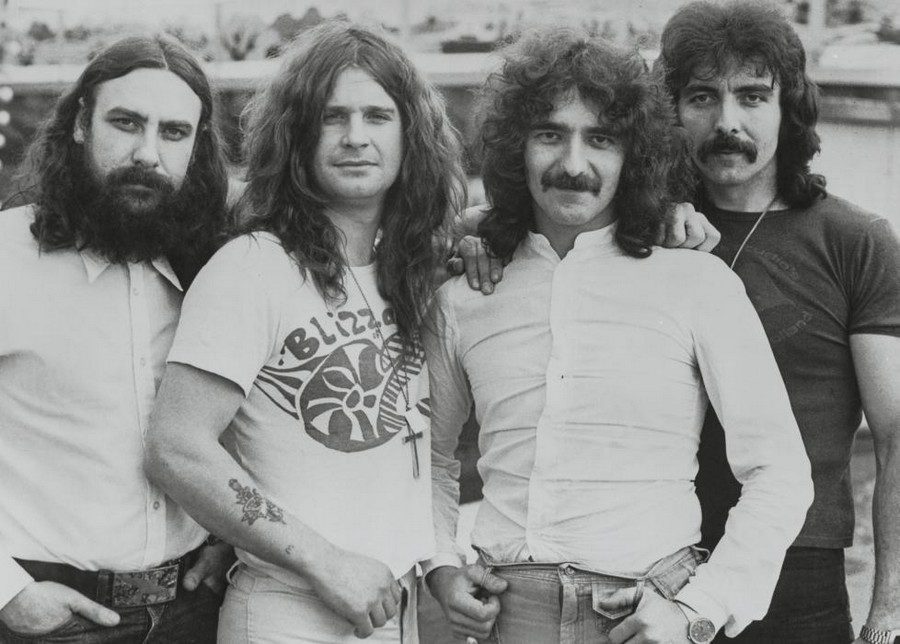
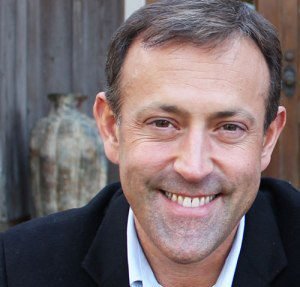 Once we break out of our [religious] restraints, we begin to discover our own capabilities. It turns out we each have our own modest little superpowers, only we’ve not had the opportunity or the freedom to exercise them. Once we acquire those, we soon come to know sides of ourselves we never knew before…and so does everybody else.
Once we break out of our [religious] restraints, we begin to discover our own capabilities. It turns out we each have our own modest little superpowers, only we’ve not had the opportunity or the freedom to exercise them. Once we acquire those, we soon come to know sides of ourselves we never knew before…and so does everybody else.

